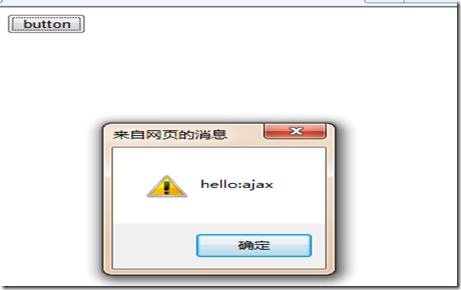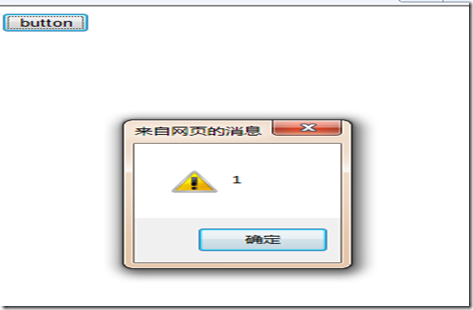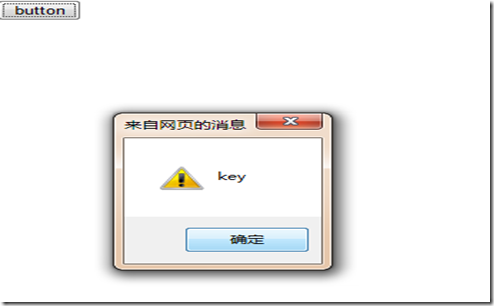 Web Front-end
Web Front-end
 JS Tutorial
JS Tutorial
 jQuery Ajax imitation AjaxPro.Utility.RegisterTypeForAjax helper method_jquery
jQuery Ajax imitation AjaxPro.Utility.RegisterTypeForAjax helper method_jquery
jQuery Ajax imitation AjaxPro.Utility.RegisterTypeForAjax helper method_jquery
In a certain project, I designed a template field engine and implemented it using html jquery. The data here inevitably needs ajax to obtain, but the team has different knowledge of js, so I wrote the following auxiliary class, which can simplify the development of ajax like ajaxpro.
Code-jQueryInvokeMethodAttribute (only method marking is done here, so it is empty):
[AttributeUsage(AttributeTargets.Method, AllowMultiple=false,Inherited=false)]
public class jQueryInvokeMethodAttribute : Attribute
{
}
Code -jQueryAjaxUtility (registering scripts and calling ajax events):
using System;
using System.Collections.Generic;
using System.Linq;
using System.Text;
namespace Green.Utility
{
public class jQueryAjaxUtility
{
public static string AjaxInvokeParam = "AjaxInvoke";
public static string AjaxInvokeValue = "1";
public static string ResponseCharset = "UTF-8";
protected static System.Web.UI.Page Page
{
get
{
return System.Web.HttpContext.Current.Handler as System.Web.UI.Page;
}
}
public static void RegisterClientAjaxScript(Type type)
{
if (Page != null)
{
if (System.Web.HttpContext.Current.Request[AjaxInvokeParam] == AjaxInvokeValue)
{
RegisterAjaxInvokeEvent(type);
}
else
{
RegisterAjaxInvokeScript(type);
}
}
}
protected static void RegisterAjaxInvokeScript(Type type)
{
Page.ClientScript.RegisterClientScriptBlock(type.GetType(), type.GetType().FullName "_" typeof(jQueryAjaxUtility).FullName "_AjaxInvokeDefaultOption", "window.defaultAjaxOption={type:'GET',cache:false, dataType:'text'};", true);
if (!jQueryUtilityCache.Current.Exists(type))
{
var methodinfo = type.GetMethods(System.Reflection.BindingFlags.IgnoreCase | System.Reflection.BindingFlags.Static | System.Reflection.BindingFlags.Public).Where(t =>
{
var attrs = t.GetCustomAttributes(typeof(jQueryInvokeMethodAttribute), false);
if (attrs != null && attrs.Length > 0)
return true;
return false;
}).ToList();
if (methodinfo != null && methodinfo.Count > 0)
{
System.Text.StringBuilder sb = new StringBuilder();
sb.AppendFormat(" window.{0}=function(){{}}; ", type.Name);
methodinfo.ForEach(t =>
{
var parameters = t.GetParameters().Select(p => p.Name).ToArray();
sb.AppendFormat(" {2}.{0} = function ({1} ajaxOption) {{", t.Name, parameters.Count() > 0 ? string.Join(",", parameters) "," : "", type.Name);
sb.Append("if(ajaxOption==null||typeof ajaxOption=='undefined'){ajaxOption={};};");
var url = Page.Request.RawUrl.IndexOf("?") == -1 ? Page.Request.RawUrl : Page.Request.RawUrl.Substring(0, Page.Request.RawUrl.IndexOf("?") );
sb.AppendFormat("ajaxOption.url = '{0}';", url);
var data = "''";
if (parameters.Count() > 0)
{
data = (string.Join(" ", parameters.Select(p => string.Format("'&{0}=' {0} ", p)).ToArray()));
data= data.TrimEnd(' ');
}
sb.AppendFormat("ajaxOption.data = 'method={1}&rn={4}&{2}={3}' {0};", data, t.Name, AjaxInvokeParam, AjaxInvokeValue,Guid.NewGuid().ToString());
sb.Append("ajaxOption= jQuery.extend(window.defaultAjaxOption,ajaxOption);");
sb.Append("jQuery.ajax(ajaxOption);};");
});
jQueryUtilityCache.Current.AddScript(type, sb.ToString());
}
}
var script = jQueryUtilityCache.Current.GetScript(type);
Page.ClientScript.RegisterClientScriptBlock(type.GetType(), type.GetType().FullName "_" typeof(jQueryAjaxUtility).FullName "_AjaxInvoke", script, true);
}
protected string GenertorScript(Type type)
{
return string.Empty;
}
protected static void RegisterAjaxInvokeEvent(Type type)
{
var Request = System.Web.HttpContext.Current.Request;
var Response = System.Web.HttpContext.Current.Response;
var method = Request["method"];
if (string.IsNullOrEmpty(method))
return;
Response.Clear();
var methodinfo = type.GetMethod(method, System.Reflection.BindingFlags.IgnoreCase | System.Reflection.BindingFlags.Static | System.Reflection.BindingFlags.Public);
if (methodinfo != null)
{
Response.Charset = ResponseCharset;
Response.ContentType = string.Join(",", Request.AcceptTypes);
var param = methodinfo.GetParameters();
object[] objs = new object[param.Length];
var i = 0;
param.ToList().ForEach(t =>
{
objs[i ] = Convert.ChangeType(Request[t.Name], t.ParameterType);
});
var obj = methodinfo.Invoke(null, objs);
if (obj != null)
{
//序列化
if (!obj.GetType().IsValueType && obj.GetType() != typeof(string))
{
if (Request.AcceptTypes.Contains("text/xml"))
{
Response.Write(Green.Utility.SerializerUtility.XmlSerializer(obj));
}
else if (Request.AcceptTypes.Contains("application/json"))
{
Response.ContentType = "application/json, text/javascript, */*";
Response.Write(Green.Utility.SerializerUtility.JsonSerializer(obj));
}
else
{
Response.Write(obj);
}
}
else
{
Response.Write(obj);
}
}
Response.Flush();
Response.Close();
Response.End();
}
}
}
}
In order to consider the performance of reflection, the class-level registration script method cache processing jQueryUtilityCache is added. See the demo for details.
Test:
html:
< form id="form1" runat="server">
As follows:
The code is as follows:
_Default.Test("ajax",
{
success: function(e) {
Copy code
The code is as follows:
public static string Test(string str)
{
2: Front desk ajax:
Copy code
The code is as follows: _Default.TestArrayJson(1, 2, 3,
_Default.TestArrayJson(1, 2, 3,
{
success: function(e) {
Copy the code
The code is as follows:
public static int[] TestArrayJson(int p1, int p2, int p3 )
{
3: Front desk ajax:
Copy code
The code is as follows: _Default.TestArrayxml("key", "value",
_Default.TestArrayxml("key", "value",
{
success: function(e) {
Copy code
The code is as follows:
public static Test TestArrayxml(string key,string value)
{
Finally take a look at the ajax http header information in FireBug:
Appendix:
Code Download  Author: Broken Wolf (cnblogs)
Author: Broken Wolf (cnblogs)

Hot AI Tools

Undresser.AI Undress
AI-powered app for creating realistic nude photos

AI Clothes Remover
Online AI tool for removing clothes from photos.

Undress AI Tool
Undress images for free

Clothoff.io
AI clothes remover

AI Hentai Generator
Generate AI Hentai for free.

Hot Article

Hot Tools

Notepad++7.3.1
Easy-to-use and free code editor

SublimeText3 Chinese version
Chinese version, very easy to use

Zend Studio 13.0.1
Powerful PHP integrated development environment

Dreamweaver CS6
Visual web development tools

SublimeText3 Mac version
God-level code editing software (SublimeText3)

Hot Topics
 1379
1379
 52
52
 How to use PUT request method in jQuery?
Feb 28, 2024 pm 03:12 PM
How to use PUT request method in jQuery?
Feb 28, 2024 pm 03:12 PM
How to use PUT request method in jQuery? In jQuery, the method of sending a PUT request is similar to sending other types of requests, but you need to pay attention to some details and parameter settings. PUT requests are typically used to update resources, such as updating data in a database or updating files on the server. The following is a specific code example using the PUT request method in jQuery. First, make sure you include the jQuery library file, then you can send a PUT request via: $.ajax({u
 PHP and Ajax: Building an autocomplete suggestion engine
Jun 02, 2024 pm 08:39 PM
PHP and Ajax: Building an autocomplete suggestion engine
Jun 02, 2024 pm 08:39 PM
Build an autocomplete suggestion engine using PHP and Ajax: Server-side script: handles Ajax requests and returns suggestions (autocomplete.php). Client script: Send Ajax request and display suggestions (autocomplete.js). Practical case: Include script in HTML page and specify search-input element identifier.
 How to get variables from PHP method using Ajax?
Mar 09, 2024 pm 05:36 PM
How to get variables from PHP method using Ajax?
Mar 09, 2024 pm 05:36 PM
Using Ajax to obtain variables from PHP methods is a common scenario in web development. Through Ajax, the page can be dynamically obtained without refreshing the data. In this article, we will introduce how to use Ajax to get variables from PHP methods, and provide specific code examples. First, we need to write a PHP file to handle the Ajax request and return the required variables. Here is sample code for a simple PHP file getData.php:
 jQuery Tips: Quickly modify the text of all a tags on the page
Feb 28, 2024 pm 09:06 PM
jQuery Tips: Quickly modify the text of all a tags on the page
Feb 28, 2024 pm 09:06 PM
Title: jQuery Tips: Quickly modify the text of all a tags on the page In web development, we often need to modify and operate elements on the page. When using jQuery, sometimes you need to modify the text content of all a tags in the page at once, which can save time and energy. The following will introduce how to use jQuery to quickly modify the text of all a tags on the page, and give specific code examples. First, we need to introduce the jQuery library file and ensure that the following code is introduced into the page: <
 Use jQuery to modify the text content of all a tags
Feb 28, 2024 pm 05:42 PM
Use jQuery to modify the text content of all a tags
Feb 28, 2024 pm 05:42 PM
Title: Use jQuery to modify the text content of all a tags. jQuery is a popular JavaScript library that is widely used to handle DOM operations. In web development, we often encounter the need to modify the text content of the link tag (a tag) on the page. This article will explain how to use jQuery to achieve this goal, and provide specific code examples. First, we need to introduce the jQuery library into the page. Add the following code in the HTML file:
 PHP vs. Ajax: Solutions for creating dynamically loaded content
Jun 06, 2024 pm 01:12 PM
PHP vs. Ajax: Solutions for creating dynamically loaded content
Jun 06, 2024 pm 01:12 PM
Ajax (Asynchronous JavaScript and XML) allows adding dynamic content without reloading the page. Using PHP and Ajax, you can dynamically load a product list: HTML creates a page with a container element, and the Ajax request adds the data to that element after loading it. JavaScript uses Ajax to send a request to the server through XMLHttpRequest to obtain product data in JSON format from the server. PHP uses MySQL to query product data from the database and encode it into JSON format. JavaScript parses the JSON data and displays it in the page container. Clicking the button triggers an Ajax request to load the product list.
 How to tell if a jQuery element has a specific attribute?
Feb 29, 2024 am 09:03 AM
How to tell if a jQuery element has a specific attribute?
Feb 29, 2024 am 09:03 AM
How to tell if a jQuery element has a specific attribute? When using jQuery to operate DOM elements, you often encounter situations where you need to determine whether an element has a specific attribute. In this case, we can easily implement this function with the help of the methods provided by jQuery. The following will introduce two commonly used methods to determine whether a jQuery element has specific attributes, and attach specific code examples. Method 1: Use the attr() method and typeof operator // to determine whether the element has a specific attribute
 Understand the role and application scenarios of eq in jQuery
Feb 28, 2024 pm 01:15 PM
Understand the role and application scenarios of eq in jQuery
Feb 28, 2024 pm 01:15 PM
jQuery is a popular JavaScript library that is widely used to handle DOM manipulation and event handling in web pages. In jQuery, the eq() method is used to select elements at a specified index position. The specific usage and application scenarios are as follows. In jQuery, the eq() method selects the element at a specified index position. Index positions start counting from 0, i.e. the index of the first element is 0, the index of the second element is 1, and so on. The syntax of the eq() method is as follows: $("s



